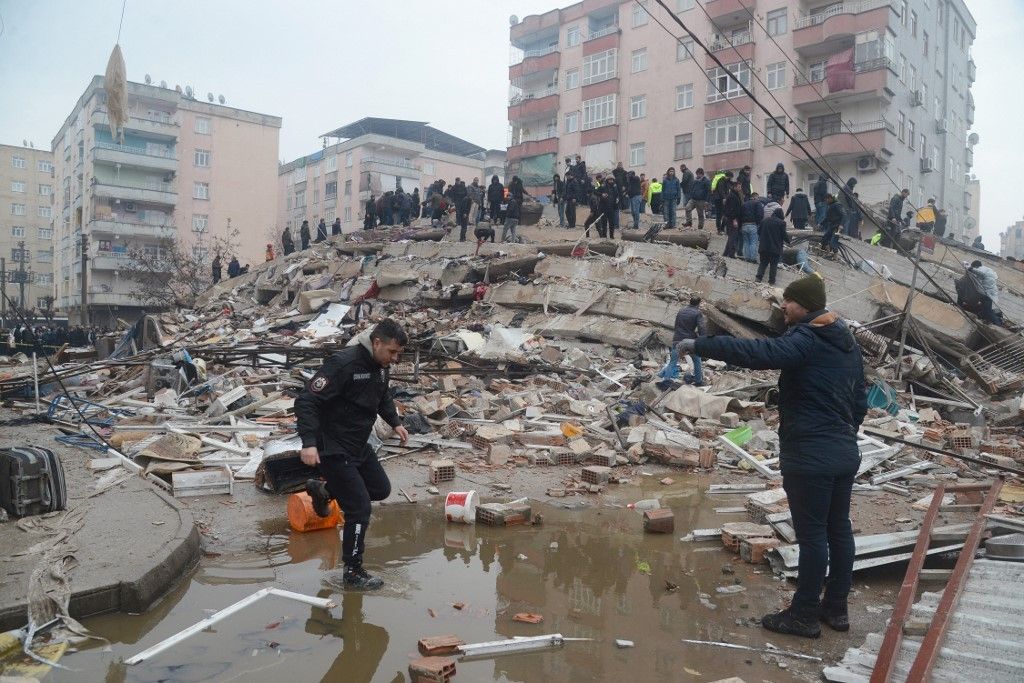Tsunamis, abandoned children: Misinformation spreads after Turkey quake

NICOSIA, Cyprus — Social media has been rife with misinformation and misattributed pictures and videos, including of a "tsunami" and a child mourning his parents, since a 7.8-magnitude earthquake hit Turkey and Syria.
The quake struck near the Turkish city of Gaziantep before dawn on Monday, killing at least 11,200 people in Turkey and Syria.
Since then, AFP fact-checkers have debunked pictures and videos that have been posted online and viewed thousands of times, showing scenes said to have been from the quake or its aftermath.
A video that was widely shared on social media claimed to show a "tsunami" caused by the earthquake on the southern Turkish coast.
But analysis of the footage showed it to be from a March 2017 storm in the South African city of Durban.
Similarly, a dramatic video showing waves crashing into a stretch of coastline and said to be in Turkey was found to be from a storm last month in San Diego, California.
Elsewhere, a series of images on Facebook, Instagram and Twitter claimed to show panic in the occupied West Bank following an earthquake in the Dead Sea on Tuesday evening, garnering tens of thousands of interactions.
But a reverse image search showed the pictures date back to June 2017 and showed Palestinians celebrating Eid al-Fitr in the West Bank town of Nablus.
Another image that proliferated in the aftermath of the quake was of a dog lying next to someone who appears to be buried under rubble, generating more than 1.5 million views on Twitter.
But a reverse image search showed the picture has been online since at least 2018 and was part of a series uploaded by Czech photographer Jaroslav Noska to the Alamy platform.
One image shared by an Egyptian news outlet shows a small boy crying as he sits atop rubble, with a caption describing him as a Syrian child left behind after the earthquake.
But the photo is part of a staged series of stock images that can be found on the website Shutterstock.
Other videos claim to show the ground or buildings shaking or collapsing during the quake or in its aftermath, but they were found to be from previous earthquakes, including one in Japan in 2011.



















